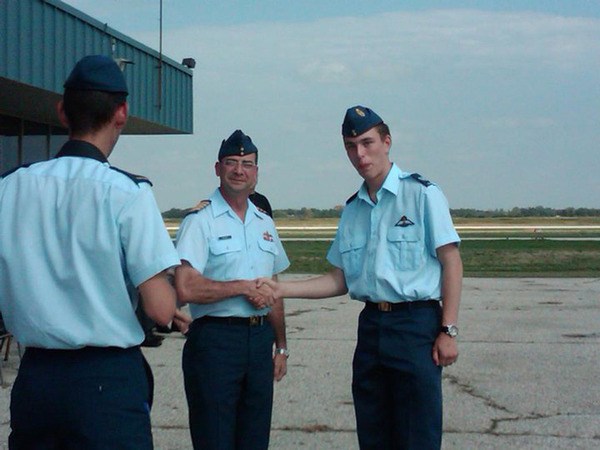Fifteen cadets were sent across the country for training by the local Thompson 737 Royal Canadian Air Cadet Corps this summer.
Of those 15, two were given special assignments - 17-year-old Franklin Cook, a cadet who has achieved the rank of Warrant Officer Second Class, and Flight Sergeant Bethanie McCorriston, 16. McCorriston was sent to the Senior Leaders Course, held in Penhold, located in Alberta between Edmonton and Calgary, over six weeks. "The course teaches advanced leadership skills and ceremonial drills," said cadet captain Lydia Blais. This is the last year the Senior Leaders Course will be offered, said Blais.
Cook was one of 26 cadets from across the Prairies and northwestern Ontario sent to an air flight school in Steinbach for seven weeks. After completing an Air Cadet Flying Scholarship, he was presented with a Transport Canada Private Pilot License.
According to Blais, the scholarships are awarded "based on cadet performance, academic performance, written examinations, a narrative, and an interview with a panel of individuals specializing in the fields of the scholarship being applied for." There are 250 flying scholarships and 300 leadership scholarships handed out annually across the country.
In addition to Penhold and Steinbach, some Thompson cadets were sent to a program in Cold Lake, in eastern Alberta. "We got a few more than usual," Blais said of the number of cadets able to be sent out compared to past years. All cadets are between the ages of 12 and 18.
The Thompson 737 Royal Canadian Air Cadet Corps trains one night per week, September through June, as part of a four-year program. After four years, cadets may be assigned to instruct younger cadets. Instruction is given primarily in the fields of citizenship, leadership, survival training, instructional techniques, drill and basics of aviation and aeronautics. There are also activities such as marksmanship, first aid, and a ground school program. There is no cost to join.
The cadet program was first established nationally in 1941, to train young Canadians for World War II, but over time the focus has shifted to emphasis citizenship and leadership skills.




